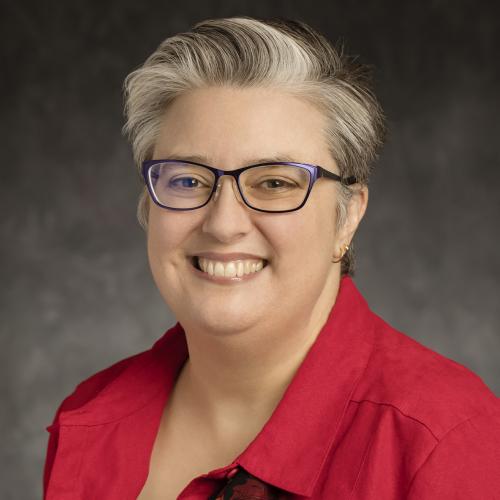Catherine Blake, professor in the School of Information Sciences and Health Innovation Professor in the Carle College of Medicine, has been named a fellow in the fourth cohort of the IAspire Leadership Academy, a leadership program aimed at helping STEM faculty from underrepresented backgrounds ascend to leadership roles at colleges and universities. The academy is part of the Aspire Alliance's Institutional Change Initiative, led by the Association of Public and Land-grant Universities (APLU) and the University of Georgia.
The academy is one pillar of diversity and inclusion work underway through the NSF INCLUDES Aspire Alliance. The National Science Foundation-backed alliance is working across post-secondary institutions to develop more inclusive institutional cultures to create a more inclusive and diverse STEM professoriate.
The leadership academy is targeted at mid-career individuals from traditionally underrepresented groups interested in serving in college or university leadership roles in STEM fields. The eighteen participating faculty and administrators were selected through a competitive, holistic review of their applications.
"As we have begun to work with the fourth cohort of the academy, we are honored to support the aspirations of leaders from across the country," said Rochelle Sapp, director of the IAspire Leadership Academy and leadership development specialist in the Office of Learning and Organizational Development at the University of Georgia.
"The IAspire fellows are extraordinarily talented, and we're excited to see the promise that can be realized by supporting and unleashing their potential," said Howard Gobstein, director of the NSF INCLUDES Aspire Alliance and APLU senior vice president.
Working in small groups in monthly meetings combined with three week-long immersive sessions, the fellows will learn effective executive leadership skills for increasingly complex higher education environments as well as strategies for influencing institutional transformation in their current and future leadership positions. IAspire Fellows are also invited to participate in Aspire's IThrive Collective, a community of support and counterspace designed to amplify the voices of underrepresented group faculty to inform institutional transformation efforts.
Blake holds a PhD and MS in information and computer science from the University of California, Irvine, and an MS and BS in computer science from the University of Wollongong, Australia. Her research in text mining seeks to support intentional human decision making from multiple streams of evidence and includes automated methods to detect outcomes, comparisons, and claims from medicine, toxicology, and epidemiology. She serves as principal investigator for the NSF’s Midwest Big Data Innovation Hub (MBDH). Blake holds a courtesy appointment in the Department of Computer Science and is affiliated with the National Center for Supercomputing Applications (NCSA), Informatics, Center for Health Informatics, and the Personalized Nutrition Initiative.
"The pandemic forced many of us to reimagine both our professional and personal priorities. It also underscored the urgent need for a more diverse and inclusive workforce in science and technology," said Blake. "I am looking forward to engaging with others in iASPIRE who share this sentiment, and I am grateful for the University's commitment to foster a more inclusive environment in science and technology."
